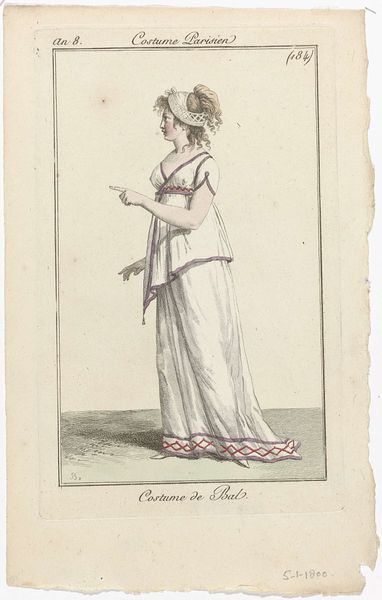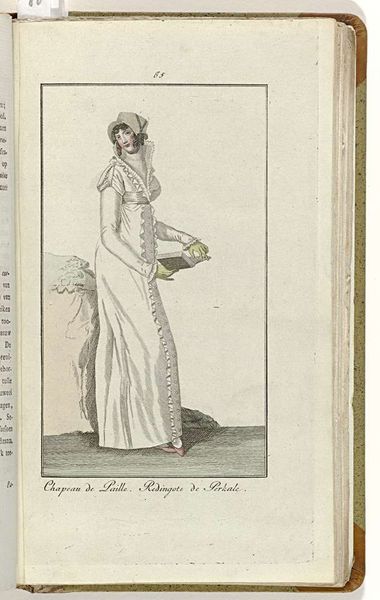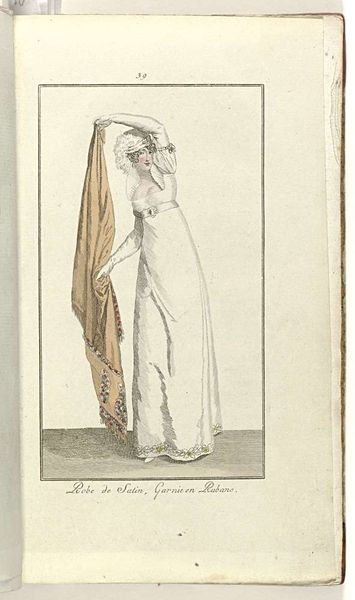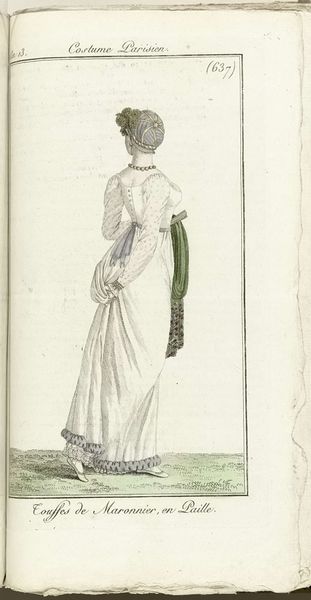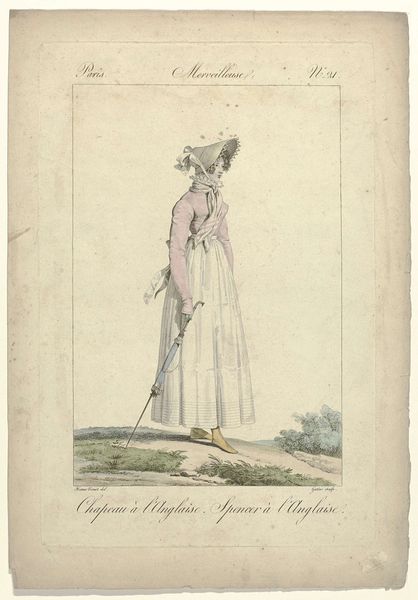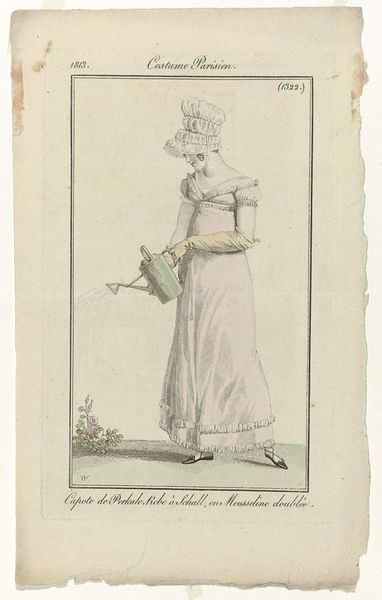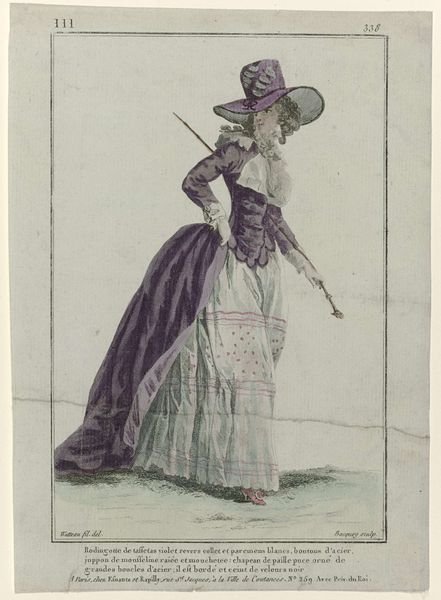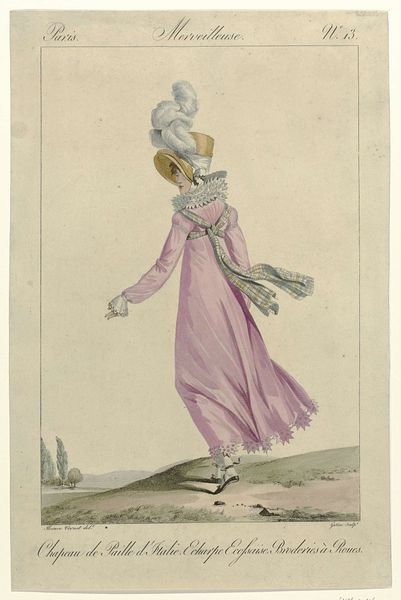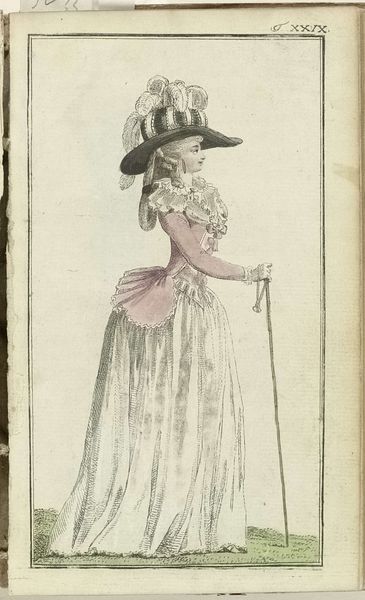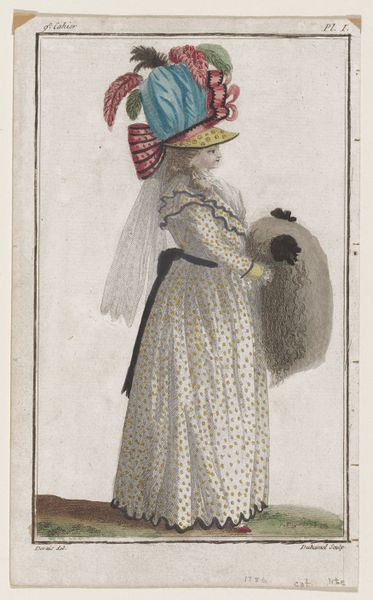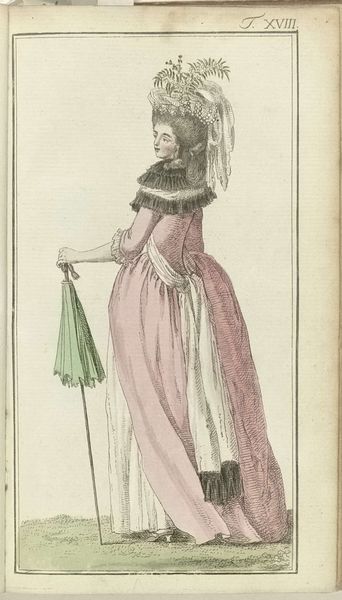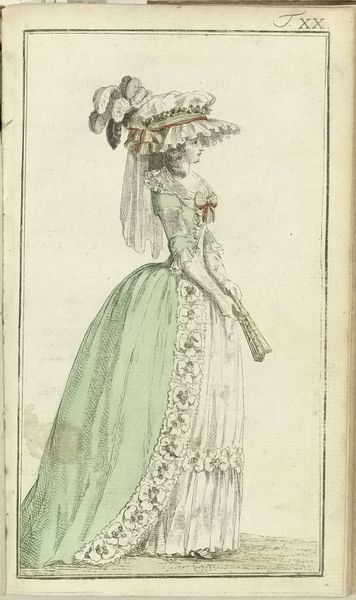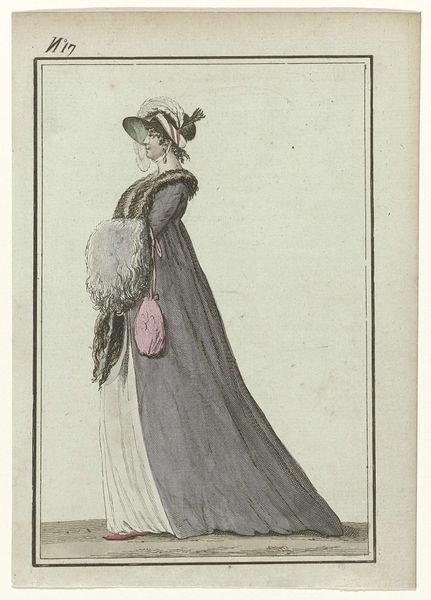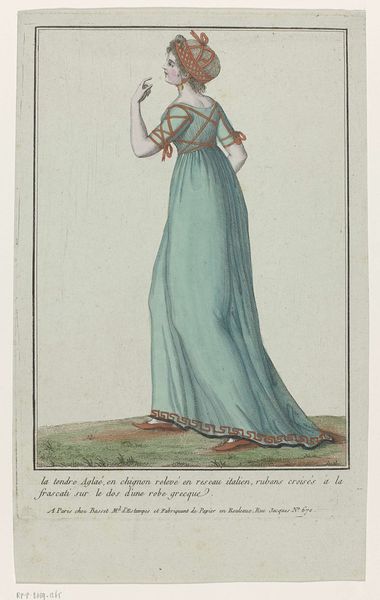
print, etching
#
portrait
#
neoclacissism
# print
#
etching
#
figuration
#
historical fashion
#
genre-painting
#
dress
Dimensions: height 190 mm, width 137 mm
Copyright: Rijks Museum: Open Domain
Editor: Here we have "Le Mois, 1799-1800, No. 16," a print by Louis Philibert Debucourt. It depicts a woman reading outside, sheltered by a parasol. It feels very mannered and composed. What strikes you when you examine this print? Curator: Initially, the Neoclassical lines present a stark contrast with the picturesque background. Observe how the verticality of her figure, emphasized by the dress, clashes with the natural curves in the landscape. The texture in the landscape creates visual interest with only small shifts in light. Does this contrast serve only as simple tension or something greater? Editor: That’s interesting! I was so focused on the figure. I suppose it underscores the artificiality of the pose, in contrast to the organic, open nature. Curator: Precisely. The parasol and the flowing fabric could symbolize a divide between public and private life and how these elements impact the composition. Note the palette—how is our attention manipulated and directed by Debucourt's strategic choices? Editor: The red accents really pop, drawing the eye back and forth between the hat, the hem of her dress, and whatever detail might be at the end of the parasol. Curator: Indeed, the carefully positioned accents establish a visual rhythm that harmonizes the entire composition. What do you feel you have learned? Editor: Considering it structurally emphasizes how carefully the scene is composed, and not simply a snapshot. You’ve made me consider that these elements impact how we interpret the whole piece. Curator: Precisely; an artwork is nothing more than the sum of its parts.
Comments
No comments
Be the first to comment and join the conversation on the ultimate creative platform.
